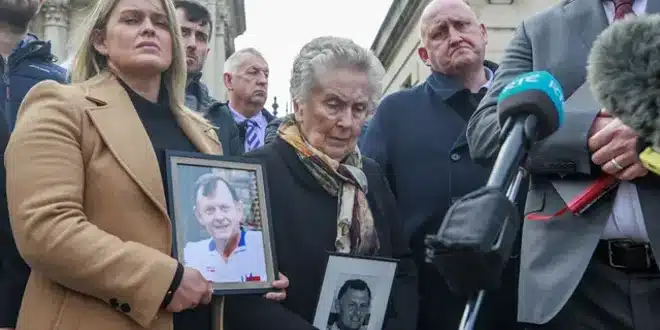A judge in Northern Ireland has mandated the UK government to conduct a public inquiry into the murder of GAA official Sean Brown. This decision follows the UK government’s failure to fulfill its human rights obligation to fully investigate the state’s potential involvement in the May 1997 killing.
Justice Michael Humphreys ruled in favor of a judicial review requested by Sean Brown’s widow, Bridie Brown. He emphasized that there is an undeniable obligation to initiate a statutory investigation, as no other viable alternatives have been presented.
Sean Brown, who was chairman of Bellaghy Wolfe Tones GAA in south Derry, was attacked, abducted, and killed by a loyalist gang while locking up the club’s gates. His body was found with multiple gunshot wounds in a remote area near Randalstown.
Despite more than 25 individuals being linked to the murder through intelligence, including state agents, no one has been convicted. Previous investigations into the killing were halted due to national security concerns and the withholding of confidential information. The family had previously requested a public inquiry, which was denied by the government in favor of engaging with the Independent Commission for Reconciliation and Information Recovery (ICRIR).
The Brown family argued that the refusal of a public inquiry violated Article 2 of the European Convention on Human Rights, which guarantees the right to life. They maintained that only a public inquiry could reveal the truth about state involvement and protection of the murderers.
The legal challenge was supported by various political representatives and GAA President Jarlath Burns. The judge noted the multiple critical reports of the initial police investigation, including findings from the former Police Ombudsman and a public apology from the PSNI for the investigation’s deficiencies.
The UK government contended that the Secretary of State has the discretion to decide on public inquiries. However, Justice Humphreys found that after 27 years, the failure to properly investigate the murder, the deliberate withholding of information, and the state’s neglect of its duty to the Brown family justified the exceptional step of compelling a public inquiry.
The judge issued an order for a public inquiry under the Inquiries Act 2005, aiming to provide answers and justice for the Brown family.
 The Daily Star Ireland
The Daily Star Ireland

